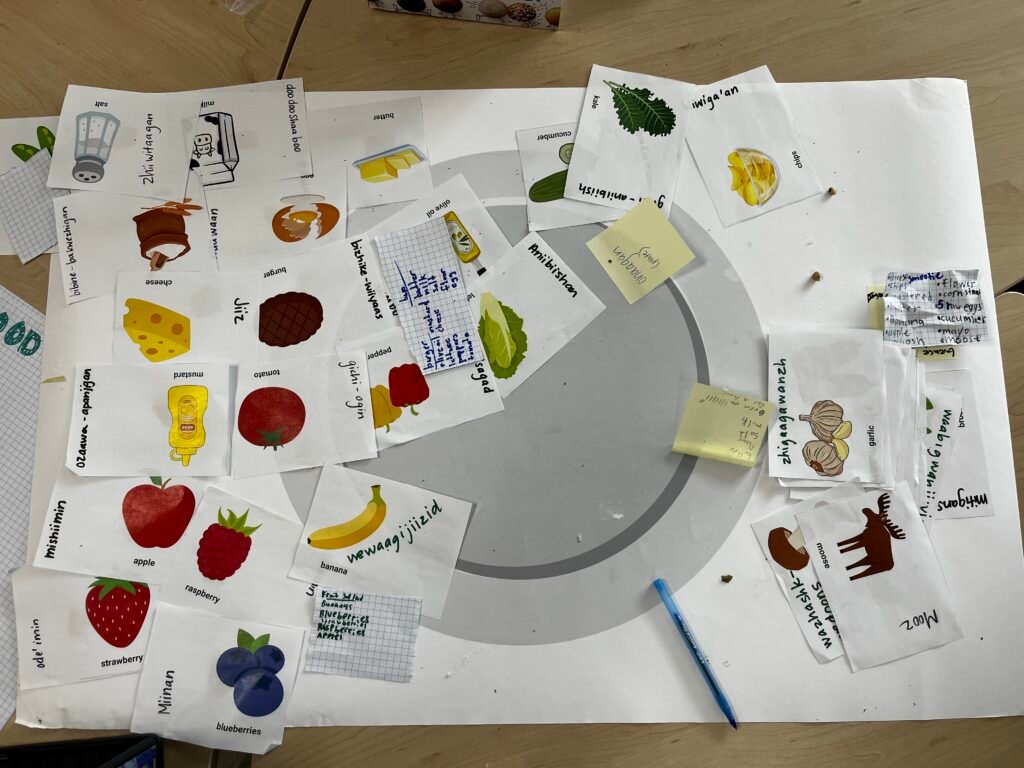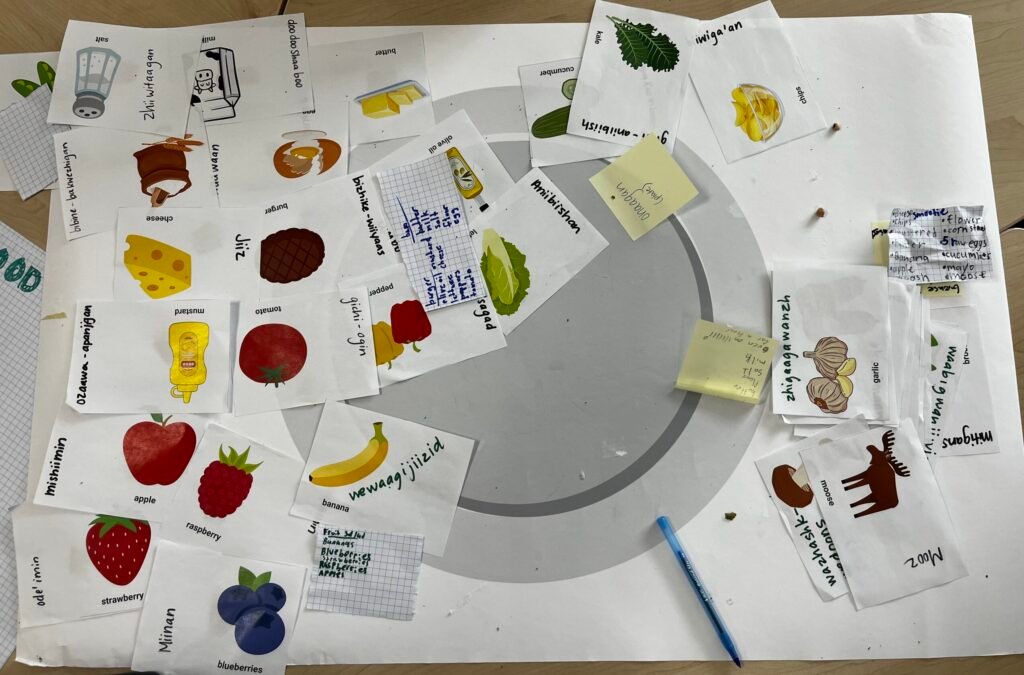Braiding Food Systems (BFS) continues the work in the north
In the winter season, the Braiding Food Systems (BFS) team was actively engaged in several community-based initiatives focused on seedling cultivation and elementary school outreach. These activities were carried out in collaboration with community members and partner organizations, strengthening local food systems and educational engagement in food security and food sovereignty.

Learning together in Thessalon. The seedling component of the project involved a two-day workshop hosted in Thessalon First Nation, in partnership with the North Shore Tribal Council. The focus of the workshop was on seed and seedling care, spanning the early stages of food cultivation—from seed germination to preparing seedlings for transplanting. The event welcomed 13 participants on the first day and nine on the second, including representatives from four different First Nations, NIIGAANIIN services, local research centers such as RAIN, and the Ontario Ministry of Agriculture, Food and Agribusiness (OMAFA). A key feature of the workshop was its participatory and hands-on approach. Participants engaged in practical tasks such as moistening soil, organizing seeds, and sowing them for germination. This approach was enriched by two educational frameworks:
-
- Blended Learning Model: Combining face-to-face instruction with digital resources to allow for personalized feedback and interactive learning.
-
- Peer-to-Peer Learning Model: Encouraging knowledge exchange and collaborative learning among participants to build a sense of community and sustained support.
The training covered essential topics such as seed biology, seedling care, growing conditions, and the importance of healthy plant development. The seedlings are cultivated and monitored in Thessalon under the care of NIIGAANIIN services and the community, supported by ongoing guidance from the BFS team. In June, the seedlings will be transported to the communities of Pic Mobert, Red Rock, and Rocky Bay, where they will be planted and nurtured. The vegetables chosen by the communities include potatoes, tomatoes, lettuce, and traditional plants such as tobacco and sage among others.
Building together with the schools. the BFS team conducted inception workshops in three elementary schools: Pic Mobert School, George O’Neill Public School, and St. Edward Catholic School. These workshops engaged students aged 12 to 15 in interactive activities related to seeds, food systems, and food sovereignty. The workshops aimed to foster dialogue and critical thinking about:
-
- Local food consumption practices
-
- Food security challenges
-
- The significance of seed keeping and the concept of seed lodges
The students provided insightful reflections on food security and sovereignty. They discussed the difference between merely having access to food and strengthening their agency over what, how, and when they eat. These initial workshops mark the beginning of a longer-term collaboration with local schools. BFS plans to co-develop further school-based activities in partnership with teachers and school boards during the upcoming summer and school year, with the goal of deepening the integration of food systems education and community gardening.
A highlight of this engagement was the establishment of two seed lodges in the schools. These are spaces where students, teachers, and families can store, exchange, and cultivate seeds, thereby enhancing community seed resilience.
Research on Foodborne Disease Risks. During the community visits, Rozhan Mokhtari, a Biomedical Science student and BFS team member, conducted semi-structured interviews for her undergraduate research project on Foodborne Disease Risk Analysis and Mitigation Strategies in Indigenous Communities in Northern Ontario.
Her research seeks to:
-
- Identify prevalent foodborne diseases within the communities
-
- Understand their sources and effects on vulnerable populations, including children, elders, and women
-
- Analyze traditional and contemporary food-handling practices
-
- Develop culturally appropriate and practical strategies for disease risk mitigation
This work will provide tailored recommendations for three First Nations, contributing to improved community health through culturally grounded approaches.
The winter activities represent a vital stepping stone in strengthening local food sovereignty, fostering youth engagement, and building knowledge-sharing networks across communities. Through collaborative planning, experiential learning, and applied research, the BFS project continues to support the revitalization of Indigenous food systems in Northern Ontario.

